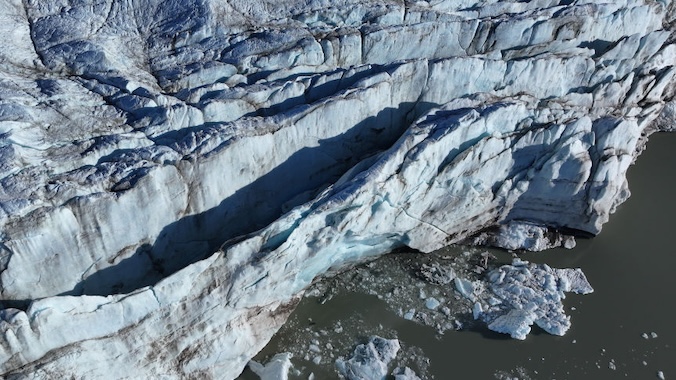At Least One Type of Ice Sheet Catastrophe Is Not Imminent, Study Finds
Photo by Sean Gallup/Getty Images
These days, most ice news is bad — very bad. There are Greenland tipping points just around the corner, Antarctic ice shelf melt inevitabilities, mysteriously disappearing sea ice, among other down notes. So when a study examining an ice sheet collapse process comes back with some results that turn the sea level rise apocalypse dial down somewhat, it is worth celebrating.
In a study published on Wednesday in Science Advances, researchers from Dartmouth, various universities in the U.K., and elsewhere examined a theoretical process known as marine ice cliff instability, or MICI. This posits that when ice shelves, the floating extensions of a land-based ice sheet, rapidly melt and calve away, the exposed cliffs could falter without the shelves buttressing support. Above a certain height, the cliffs could face more pressure than the ice has strength to withstand, leading to rapid collapse of those cliffs. The idea is based on fairly limited observations and guesses about some areas of Greenland; MICI isn’t yet incorporated into ice loss and sea level rise modeling, since it has not yet really been seen in the wild.
-

-

-

-

-

-

-

-

-

-

-

-

-

-

-

-

-

-

-

-

-

-

-

-

-

-

-

-

-

-

-

-

-

-

-

-

-

-

-

-

-

-

-

-

-

-

-

-

-

-

-

-

-

-

-

-

-

-

-

-

-

-

-

-

-

-

-

-

-

-

-

-

-

-

-

-

-

-

-

-

-

-

-

-

-

-

-

-

-

-

-

-

-

-

-

-

-

-

-

-

-

-

-

-

-

-

-

-












































































































